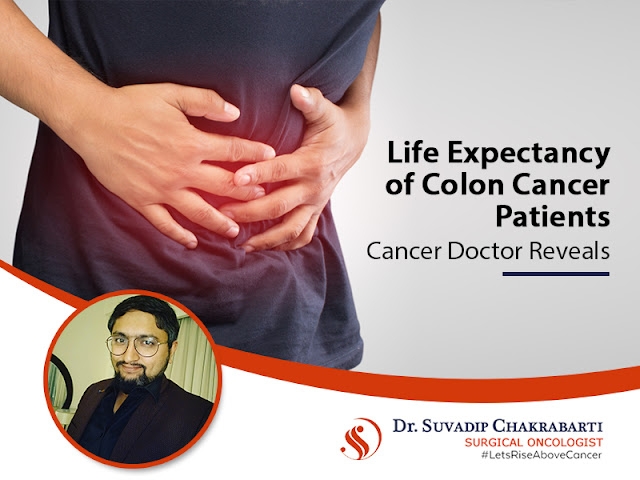In this blog post, we will focus on learning more about how to understand a patient's disease reaction once it has started. Another significant topic to explore will be how well and how long a person survives after the commencement of the disease, says the colon cancer doctor in Kolkata.
Factors that determine prognosis and life expectancy
As with most
malignancies, the prognosis and life expectancy are determined by:
·
Cancer
detection stage — Localized stage 0 tumours have a better prognosis than
distant stage three or four malignancies. The earlier cancer is detected, the
better the prognosis and the longer the life expectancy.
·
Cancer
Grade – The higher the grade, the greater the difference between normal and
cancer-like cells, and the worse the prognosis.
·
Lymph
nodes involvement – Cancer spreads through the lymphatic system. The prognosis
becomes poorer as the number of lymph nodes implicated increases.
·
The
older you are, the worse your prognosis will be.
·
Size
and location of tumour – If the tumour is located or sized in such a way that
it blocks the colon or causes a hole in the colon, both of these things can
have a negative impact on the prognosis.
·
Individual
health — The better the patient's health, the more likely they are to endure
cancer therapy and emerge cancer-free.
·
Carcinoembryonic
antigen (CEA) – It is a blood-borne protein molecule. When a patient has colon
cancer, their blood CEA levels may rise, affecting their response to treatment.
The average
age of disease onset in colon cancer patients was discovered to be about 49.1
years in a study undertaken by an Indian establishment over the course of a
year. According to the best cancer doctor in Kolkata all
prognosis-related numbers in India differ from those in the West, including a
patient's nutritional state.
Even at the
same age, each person's prognosis is different.
The
percentage of people who live after being diagnosed with colon cancer is
referred to as survival rates. The percentage of people living after five years
of disease detection is known as the five-year survival rate. The relative
survival rate is the rate of survival compared to a healthy person of the same
age who does not have the disease.
Location-based survival rates
Colon cancer
that is identified at stage 0 and well captured in the organ of origin is known
as localised colon cancer. Such colon cancers have a 90 percent five-year
relative survival rate.
Colon cancer
that has spread to another section of the body is known as regional colon
cancer (stage 2 and 3). Such colon cancers have a known five-year relative
survival rate of 71%.
The one that
has spread to another section of the body is called distant (stage 4). As per
the colon cancer treatment specialist in Kolkata, such colon tumours
have a known five-year relative survival rate of 14%.
India has one
of the lowest five-year survival rates for colorectal cancer in the world, at
less than 40%.

0 Comments
Post a Comment